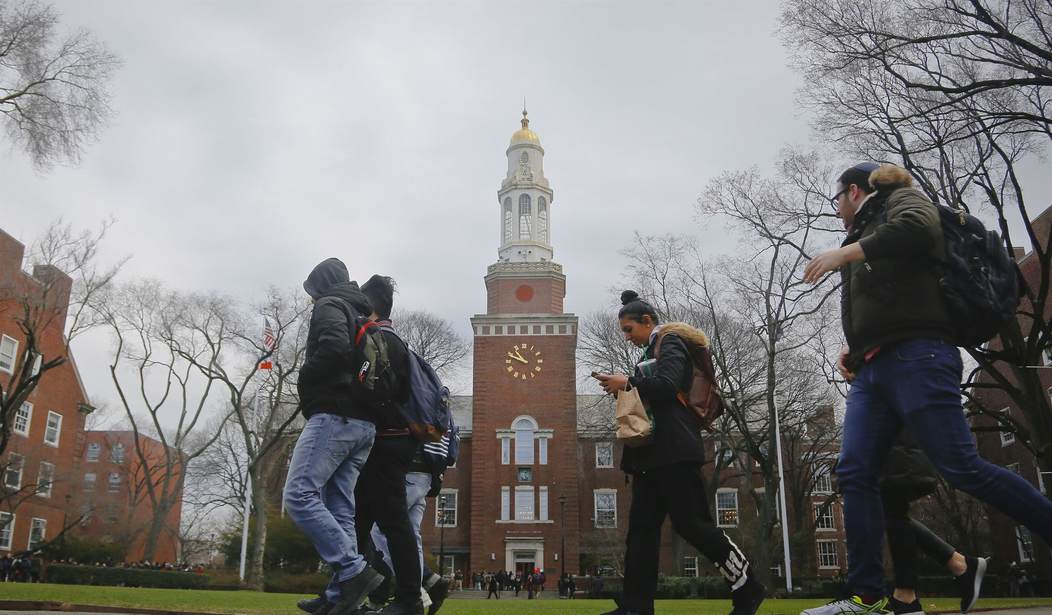I’ve never set foot on my elite women’s college campus, but that didn’t save me from my enraged peers when I announced, “If you support Trump, you are my friend. If you support Biden, you are my friend. If you feel the need to degrade those who feel differently from you...maybe we aren’t friends.”
That’s all I said on my Instagram story, yet execrable messages began trickling into my direct messages from my peers. I was told that I was a part of the problem, and that nobody wanted to be friends with me. I was accused of believing that black people are inferior, and I hate the LGBT community. I was told “don’t expect me to be docile to Trump supporters,” and to “f**** outta here.” Never before had comments made me feel so sick to my stomach, and it was all because I suggested that I treat everyone with respect.
I decided to respond by asking them to clarify their thoughts; I offered my perspectives on freedom of speech and emphasized people’s worth beyond their politics. I cited thinkers like Voltaire, and objected to faux history, but it was no use. They didn’t want dialogue; they wanted a sacrificial lamb.
My peers broadcasted vile public statements about me, and Trump supporters in general, calling us every profanity in the dictionary. I was reported to a BIPOC (Black, Indigenous, People of Color) Instagram account, run by alumni from my school with thousands of followers meant for community members to call out racism. The way the page works is community members fill out a form, and it’s automatically posted. This allows people to vent their concerns anonymously and without accountability. That evening, there was a post about me.
Recommended
The post emphasized that I was white, accused me of being “insensitive,” willing to befriend white supremacists, and gaslighting, and told me to check “my privilege” and that there was something wrong with me because I follow and admire political commentator Ben Shapiro.
The post garnered much support, but the worst part was below the post, where there were thirty comments. They mocked my appearance and conservative identity and said that I didn’t belong at Mount Holyoke and should leave. They were ashamed to share the same campus with me, and that I was lucky that I wasn’t on campus. My views were “disgusting” and that I was “f***ing humiliating.” I needed to “buck the f*** up,” and called a racist, sexist, white supremacist, and other derogatory names. People who were former friends now voiced support of the atrocious comments. Once anonymous, my identity went public, which then escalated the harassment and even led to threats.
Two days later, the incendiaries moved on. However, I couldn’t as easily. People were terrified of being my friend or associated with me. Many had unfollowed or blocked me. People who I called my friends no longer wanted to be my friend. I’ve talked to the administration about what happened to me, and although they had sympathized with my situation, they didn’t do a thing about it. Because of the pandemic, I am a freshman who has never been to campus. However, I am somehow the most hated individual on campus- all because I expressed openness to bipartisan respect.
In the midst of the aftermath, a silver lining appeared: there were words of encouragement from alumni and a handful of students. Some told me they had respect for me for being open about my political affiliation in an intellectually terrorizing environment. Some reached out to see how I was doing, and that they were here for me. One student introduced herself saying, “I come in peace!” and she’s now one of my closest friends. I had hit rock bottom, but I wasn’t alone.
It’s disturbing to think that members of my generation believe that it’s “compassionate” to smear anyone who dares to refuse their narrative as “racist.” It’s concerning to think that the next generation of leaders who preach that they don’t tolerate hate are the same people who spew vitriol at their fellow students with dissenting political ideologies.
I attend college to prepare me for the real world, to expand my worldview. I attend a women’s college for an empowering experience. The real world isn’t an echo chamber, where those who dare to venture outside of the chamber are slaughtered, let alone in an institution whose telos is to question and challenge the root of the way its students see the world. And it’s certainly not empowering to get persecuted for a divergent thought in a community meant to welcome all women.
My experience is not unique on college campuses. There are plenty of angry progressive mobs on campuses across the country hunting for their next prey, ready to wreak havoc upon anyone who deviates from them. However, further normalizing this bigotry will only have a dire consequence on society: no longer are we attacked for disagreeing, but we are now threatened for not only agreeing to disagree respectively but suggesting we do so. This omen is why I plan to stand up against these bullies and will do so until it’s no longer dangerous to have variant political beliefs.
Lela is a first-year student at Mount Holyoke College studying philosophy and politics, she is a contributor to Campus Reform and Lone Conservative.

























Join the conversation as a VIP Member